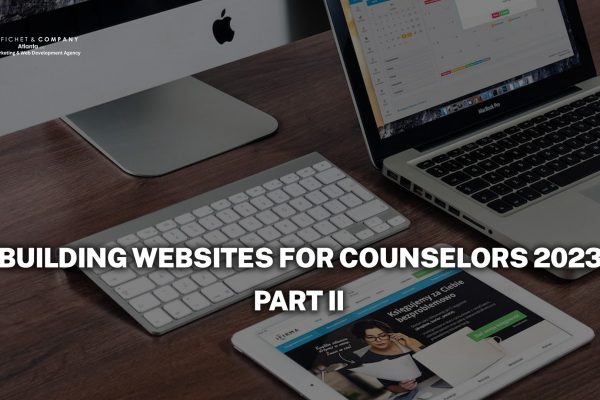7 Legendary SEO Strategies for eCommerce Websites
SEO Strategies
Table of Contents
If you are in the retail business and want to have a wide range of audiences, you need a well-optimized eCommerce website at the earliest.
Why?
An organized and easy-to-use website will help your prospective customers to understand the demographics, the location, the product preference, and finally the product of their choice.
You can also use tracking to understand your visitor’s preferences and offer them services accordingly.
An e-commerce website does much more than that. It can also assist you in determining where things are going wrong. For instance, which offers are off-putting the customers or which traffic sources are ineffective, and cart abandonment issues and their potential causes. Of course, the global growth of your e-commerce website is the most important reason for you to have your site fully optimized. E-commerce continues to grow year after year and this trend appears to be continuing.
If you’re already online, that’s fantastic. However, if you do not take proactive steps to increase visibility, you risk remaining invisible to new prospects and leads. Wondering how to do that?
Just implement the popular SEO strategies for e-commerce.
Let’s begin from the beginning
What is SEO for e-Commerce?
SEO for e-commerce is a marketing strategy that aids online retailers to rank higher than their competitors in search engine results. A well-designed and optimized website with high-quality content will rank higher in search engines like Google. Thus increasing your website’s visibility and driving your sales higher. In other words, SEO strategies for e-commerce focus on optimizing your site to increase leads and conversions.
SEO for e-commerce, however, differs from SEO for content-focused websites. In the latter it entails more than just writing blog posts, gaining links, and adding keywords. You must understand how search engines function and how you can benefit from their algorithm.
SEO Strategies for e-commerce
1. Improve your SEO with an Engaging product Description
One of the most basic but underutilized eCommerce strategies is to write unique product descriptions that strengthen your brand image, engage your audience, and educate your customers. Implementing these strategies will set your eCommerce site apart from the competition in a way that is understandable to both your customers and search engines.
If your company sells products that are available on every other eCommerce site, a quality product page copy will become even more valuable for conversion rates. Because many of these businesses will copy the product description directly from the web page of the manufacturer, their content will be duplicated and thinned across search engines.
2. Do your Keyword Research in the proper way
There are numerous approaches to optimizing your e-commerce site, and SEO strategies differ with every site or product. However, online retailers could still follow some guidelines to optimize their page, and that is conducting proper keyword research.
The intention behind a search query is referred to as keyword intent. You can spot it by observing the specific terms and phrases people use when searching for an item online. Yes, you will obviously want to rank for the most relevant and popular keywords in your industry, but you also need to understand your buyer’s intent. There are primarily two types of content
-
Information Keyword Intent
In SEO, informational keyword intent is used to describe the type of information looked up by the searcher.
These types of searches typically include:
How-tos: These searches usually include questions like “how to do? or how to go?”
Direct purchase: These involve keyword searches such as “buy this.”
Factual queries: When a searcher wants more information related to a topic, they use words like “fact” and “information.”
-
Commercial Keywords Intent
When people are looking for information that will help them make a purchase, what they look for is known as commercial keyword intent. This means they want to find what they’re looking for and buy it as soon as possible.
3. Mobile Optimization of your website is a must practice
While optimizing your website, these are the two things you should keep in mind.
- What is the most important thing on that page?
- How would you maximize the visibility of the page?
Optimizing your website for mobile devices has become particularly crucial for a long time. People are not always accessible via their desktops or laptops, but they are always accessible via their mobile phones. As a result, if you own an online store, you should prioritize providing a simple mobile experience over a complex desktop experience. This consists of creating a responsive website that scales to the size of the device being used to open it.
For nearly three years, Google has stated that they are transitioning to a mobile-first index. It means that while ranking websites, Google prioritizes your mobile site over your desktop site, because a large percentage of shopping experiences begin and end on the phone. As a result, if Google prioritizes mobile usage, your eCommerce store should too.
4. Reduce your page loading time and improve your website speed
A fast website is becoming an increasingly important part of Google’s algorithm. Thus it goes unsaid, that a fast website will significantly improve your user experience and rankings. Your priority should always be user experience, but how speedily your website loads is also a part of that experience. Take the necessary steps to become the fastest website among your competitors. But if you are serving your content faster than your competitors in your industry, it’s fine.
Large images usually slow down the website. So make sure your images are properly compressed for web use. Keep an eye out for CMS that may force larger versions of product images when compressed versions are used.
5. Incentivize Customer Engagement and Reviews
For product pages, customer ratings and reviews are very important. It is a trust base for your prospective customers. They are crucial for e-commerce businesses for improving conversion rates. For that, you need to have extremely well-functioned customer service also. Understand your customer’s problems, try to solve them, if you can’t make your customer know that you tried. Add the personal touch and then send automated messages for reviews. You can also set up thank you emails and offers once they have reviewed your product.
6. Long-tail Keyword variations.
Content is still the king of every media. So your blogs should ideally contain variations of long-tail keywords for your product category. For example, if you are selling cooking wares, you should write blogs about wooden cookware and steel cookware, which one is preferable and why? What kind of food is made best in which kind of vessels, etc.
7. Backlinking
Backlinking has long been regarded as one of the most genuine and valuable SEO strategies for a website. And in the case of e-commerce SEO, it becomes even more important because if your platform is recommended to the audience by some credible sources, it can generate a lot of traffic to your website. Guest blogging is the best way to get high-quality backlinks because it is favored by search engines. You can continue posting blogs related to your niche; however, you must ensure that, in addition to link building, the posted content is beneficial to the users.
We hope these major SEO strategies for your e-commerce sites will help you rank higher in the SERPS and improve your website’s traffic and conversion rates. So go ahead, and make the most of the online e-commerce market.
About Montfichet & Company – Atlanta
Atlanta Our team of experts Montfichet & Company – Atlanta can not only build your business website, but we can manage the process while allowing you to work in your business. We provide Industry research & market analysis to provide efficient content for the Website. We also partner with our sister company The Trusted Automation to help business owners or aspiring business owners and innovators obtain the training needed to push to deliver exceptional results.
If you found this article beneficial, feel free to leave a comment below. We are located at 3343 Peachtree Road Ste. 180-581 in Atlanta, Georgia. You can also email our team of experts directly at Atlanta@montfichet.com or contact us at 404-900-9814 for more information.









